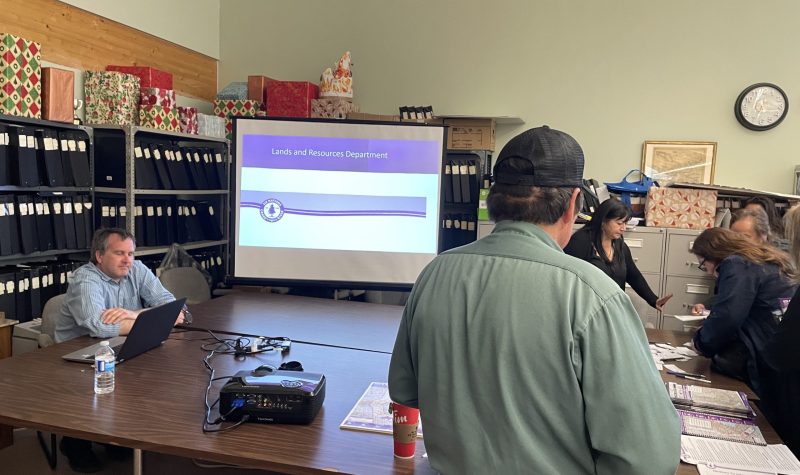A court case that was launched over 25 years ago by the Six Nation of the Grand River Band is expected to go to court in 2024. However, new interveners may push that date back. Intervention hearings took place during the week of May 8th to 12th, 2023 in Toronto.
According to the Six Nation Litigation website page, the Six Nations of the Grand River Band is suing the governments of Canada and Ontario in a court case that started in 1995. The Band says that under the 1784 Haldimand Proclamation, which it considers a treaty, the British Crown set aside about 950,000 acres of lands along the Grand River in Ontario which the Six Nations of the Grand River and their descendants were to enjoy forever.
In addition, the Band says after 1784, the British Crown, and later the governments of Canada and Ontario, failed to set aside these lands, improperly sold most of them to settlers, and mismanaged the proceeds of sales from them.
To that effect, the Band is seeking compensation from the governments of Canada and Ontario.
Canada and Ontario claim that the tract of land described in the 1784 Haldimand Proclamation and 1793 Simcoe Patent, which was made available to the Six Nations people who wished to settle there, came from lands covered by a treaty made with the Mississaugas in 1783.
They say the lands were not Six Nations treaty lands and were not reserve lands.
In this next phase of the proceedings, interveners have now come forward saying the case might affect their rights. They include the Haudenosaunee Confederacy Chiefs Council or HCCC as it was referred to on the court, represented on their behalf by the Haudenosaunee Development Institute (HDI); the Men’s Fire of the Six Nations Grand River Territory (“Men’s Fire”); and the Mississaugas of the Credit First Nation (“MCFN”).
The interveners expressed a wide variety of perspectives - there is not unanimous agreement among the intervenors about the problem or the solution.
HDI says that it is acting with authority from the HCCC to represent all Haudenosaunee people in Canada and the U.S., whereas the Men’s Fire says that HDI does not properly represent, and is not authorized to represent, all Haudenosaunee people. The MCFN supports the Six Nations of the Grand River to hold Canada and Ontario accountable for failures and broken promises relating to the Haldimand Proclamation lands. However, because those lands are located in what it says is its traditional and treaty territory, MCFN want to ensure its history, rights, and relationship with that territory are accurately presented. But the MCFN do not seek compensation nor intend to reduce compensation that Canada and Ontario may owe.
According to the MCFN they believe the litigation poses a serious threat to its own territory, treaties and rights. In its intervention presentation, MCFN lawyer Nuri Frame explained that the MCFN support SNEC ’s litigation against the Ontario and Canadian governments for its mishandling of funds and lands as well as to receive compensation from them. He went on to say that they agree this litigation is not about aboriginal title or rights but also said that it appears to be a litigation about everything but title and rights. In addition, he added that the MCFN intervention would not add years to the case as submitted by Six Nations and that they have genuine and direct interest in the case, adding that the MCFN are the “sole indigenous people in the case with treaties”. He went on to say the MCFN were not duped, followed blindly or were in cahoots with the Ontario government as part of its intervention but that they were deeply alarmed by what the parties have no brought forward.
Ontario’s lawyer David Tortilla then respond to what the MCFN presented and said the idea that Ontario was “meddling” or a puppet master leading the MCFN in the intervention is untrue and that Ontario somehow engineered the intervention with the MCFN are serious allegations and inappropriate.
Canada’s lawyer Katrina Longo responded by saying that the plaintiff’s new motion of limiting issues with interveners should not apply because the issues have not yet been finalized in the case.
The interveners plea's are now in the hands of Justice Akbarali the Judge on the case who ended the session by saying her decision shouldn’t take too long. Still, once her decision is reached the interveners could challenge that decision with an appeal.
Court could resume in late summer or early fall once Judge Akbarali reaches her decision.
After last weeks intervention proceedings wrapped up, CKRZ took the opportunity to speak with Lands and Research Director Lonny Bomberry as well as Six Nations lawyer Robert Janes about next steps in the litigation. Bomberry said the next step is amending the Six Nations Statement of Claim that the Haldimand Track is in fact a treaty.
David Moses of CKRZ News explains the complexities of this case and what happened last week in the courtroom. Listen to the report below:


